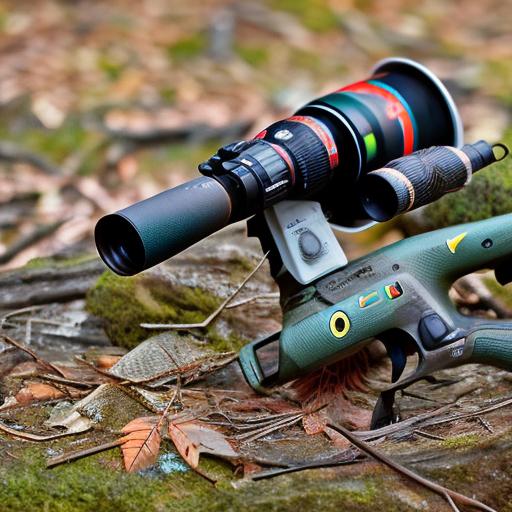Your cart is currently empty!

dove hunting equipment

Dove hunting is a popular outdoor activity that requires the right equipment to ensure a successful and safe experience. Whether you are a seasoned hunter or a beginner, having the proper gear is essential. This article will provide a comprehensive guide to dove hunting equipment, covering everything from firearms and ammunition to clothing and accessories.
Key Takeaways
- Dove hunting requires specific equipment to ensure a successful and safe hunt.
- Essential gear includes ear and eye protection, a hunting vest, and a hunting license.
- Choosing the right shotgun for dove hunting involves considering factors such as gauge, weight, and barrel length.
- Understanding ammunition for dove hunting involves knowing the appropriate shot size and load for the type of dove being hunted.
- Optics and scopes can enhance the hunting experience, but are not necessary for dove hunting.
Essential Gear for Dove Hunting
When it comes to dove hunting, there are a few essential pieces of gear that every hunter should have. First and foremost, ear protection is crucial. The sound of gunfire can be damaging to your hearing, so investing in a good pair of earplugs or earmuffs is essential.
Shooting glasses are another important piece of gear for dove hunting. They not only protect your eyes from debris but also enhance your vision, allowing you to spot doves more easily. Additionally, wearing shooting glasses can help reduce eye strain and improve your overall shooting accuracy.
Lastly, don’t forget to obtain the necessary licenses and permits before heading out on your dove hunting adventure. Each state has its own regulations regarding hunting licenses, so be sure to check with your local wildlife agency for specific requirements.
Choosing the Right Shotgun for Dove Hunting
Selecting the right shotgun for dove hunting is crucial for both safety and success in the field. There are several factors to consider when choosing a shotgun, including gauge, weight, and barrel length.
The most common gauge for dove hunting shotguns is 12 gauge, although 20 gauge shotguns are also popular choices. The gauge refers to the diameter of the shotgun’s bore, with smaller numbers indicating larger bores. A 12 gauge shotgun provides more power and versatility, making it suitable for a wide range of game.
Weight is another important consideration when choosing a shotgun for dove hunting. A lighter shotgun is easier to carry and maneuver in the field, but it may also have more recoil. On the other hand, a heavier shotgun may be more stable and absorb recoil better, but it can be tiring to carry for long periods.
Barrel length is also a factor to consider. Shorter barrels are generally more maneuverable, making them ideal for hunting in dense cover. Longer barrels, on the other hand, offer improved accuracy and range. Ultimately, the choice of barrel length depends on personal preference and hunting conditions.
Understanding Ammunition for Dove Hunting
Choosing the right ammunition is crucial for dove hunting success. The most common type of ammunition used for dove hunting is birdshot, which is specifically designed for shooting small game birds like doves.
Birdshot comes in different sizes, with smaller numbers indicating larger pellets. For dove hunting, shot sizes 7.5 or 8 are commonly used. These smaller pellets provide a dense pattern and sufficient stopping power to take down doves at close to medium range.
It’s important to note that using larger shot sizes can result in excessive damage to the meat of the dove, making it less desirable for consumption. Additionally, some states have regulations regarding the maximum shot size that can be used for dove hunting, so be sure to check your local regulations before purchasing ammunition.
Optics and Scopes for Dove Hunting
While not essential, using optics and scopes can greatly enhance your dove hunting experience. Optics such as binoculars or spotting scopes allow you to spot doves from a distance and identify their flight patterns. This can be particularly useful when scouting for potential hunting spots.
Scopes, on the other hand, can improve your shooting accuracy by providing a magnified view of your target. They allow you to aim more precisely and make accurate shots at longer distances. However, it’s important to note that using a scope may limit your field of view and make it more difficult to track fast-flying doves.
Clothing and Accessories for Dove Hunting
When it comes to clothing and accessories for dove hunting, camouflage is key. Doves have excellent eyesight and can easily spot hunters who are not properly concealed. Wearing camouflage clothing that matches the surrounding environment can help you blend in and remain undetected.
In addition to camouflage clothing, wearing appropriate footwear is essential. Opt for comfortable and durable boots that provide good traction, as dove hunting often involves walking through uneven terrain and brush.
A hat is another important accessory for dove hunting. Not only does it protect you from the sun, but it also helps to conceal your face and reduce glare. Choose a hat with a brim that provides shade and has a camouflage pattern to further enhance your concealment.
Decoys and Calls for Dove Hunting
Using decoys and calls can greatly increase your chances of attracting doves and improving your hunting success. Decoys are lifelike replicas of doves that are placed in strategic locations to lure in passing birds. They create a sense of safety and attract other doves to the area.
Calls, on the other hand, mimic the sounds that doves make to communicate with each other. By using calls, you can create the illusion of a flock of doves in distress or a feeding frenzy, which can attract nearby doves to investigate.
When using decoys and calls, it’s important to set them up in a realistic manner. Place decoys in small groups or pairs, as doves are social birds and are more likely to be attracted to other doves. Additionally, practice using calls before heading out into the field to ensure you can produce realistic sounds.
Dove Hunting Bags and Vests
Having a reliable bag or vest for carrying your equipment and ammunition is essential for dove hunting. Look for a bag or vest that has multiple pockets and compartments to keep your gear organized and easily accessible.
Consider the size of the bag or vest and choose one that can comfortably carry all your necessary equipment without being too bulky or heavy. Adjustable straps and a comfortable fit are also important factors to consider, as you’ll be wearing the bag or vest for extended periods.
Cleaning and Maintenance of Dove Hunting Equipment
Proper cleaning and maintenance of your dove hunting equipment is crucial for its longevity and performance. After each hunting trip, thoroughly clean your shotgun to remove any dirt, debris, or residue that may have accumulated.
Use a cleaning rod, brushes, and solvent to clean the barrel of your shotgun. Pay close attention to the chamber and bore, as these areas can become fouled with powder residue and lead buildup. Additionally, wipe down the exterior of the shotgun with a clean cloth to remove any dirt or moisture.
It’s also important to store your shotgun in a dry and secure location when not in use. Moisture can cause rust and damage to the firearm, so consider investing in a gun safe or case to protect your shotgun from the elements.
Safety Measures for Dove Hunting Equipment
Safety should always be a top priority when it comes to dove hunting. Always treat your shotgun as if it is loaded, even if you know it is not. Never point the muzzle of your shotgun at anything you do not intend to shoot, and always keep your finger off the trigger until you are ready to shoot.
Wearing appropriate safety gear is also essential. In addition to ear protection and shooting glasses, consider wearing a blaze orange hat or vest to increase your visibility to other hunters in the area.
Lastly, be aware of your surroundings and know the location of other hunters in the field. Communicate with fellow hunters and establish clear boundaries to avoid any accidents or misunderstandings.
Having the right equipment is essential for a successful and safe dove hunting experience. From firearms and ammunition to clothing and accessories, each piece of gear plays a crucial role in improving your hunting success and ensuring your safety in the field. By investing in quality equipment and following proper maintenance and safety measures, you can enjoy a rewarding dove hunting experience for years to come.
If you’re an avid dove hunter, you know that having the right equipment is crucial for a successful hunt. From shotguns to decoys, every piece plays a role in your hunting experience. But have you ever wondered about the best places to hunt rabbits or the best time of day to hunt quail? Old Oak Syndicate has got you covered with their informative articles on these topics. Check out their article on the “Best Places to Hunt Rabbits” and discover new locations to explore. And if you’re interested in quail hunting, don’t miss their article on the “Best Time of Day to Hunt Quail” for valuable insights. Expand your hunting knowledge and enhance your overall hunting experience with Old Oak Syndicate’s expert advice.
FAQs
What is dove hunting equipment?
Dove hunting equipment refers to the tools and gear used by hunters to hunt doves. This includes firearms, ammunition, decoys, blinds, and other accessories.
What type of firearm is best for dove hunting?
Shotguns are the most commonly used firearms for dove hunting. A 12-gauge shotgun is the most popular choice, but 20-gauge and 28-gauge shotguns are also suitable for dove hunting.
What type of ammunition should I use for dove hunting?
For dove hunting, hunters typically use small shot sizes such as 7.5, 8, or 9. These shot sizes are effective for taking down doves without damaging the meat.
What are dove decoys?
Dove decoys are lifelike replicas of doves that are used to attract doves to a hunting area. They can be made of plastic, wood, or other materials and are often placed on a perch or stake.
What is a dove hunting blind?
A dove hunting blind is a structure that hunters use to conceal themselves from doves while hunting. Blinds can be made of natural materials such as brush or can be purchased as portable, pop-up blinds.
What other accessories are useful for dove hunting?
Other useful accessories for dove hunting include shooting glasses, ear protection, a hunting vest or pack, and a cooler to store harvested doves. A hunting dog can also be helpful for retrieving downed birds.

Herb has been a longtime lover of the outdoors. Whether it be hunting, camping, fishing or just getting outside to reset. Proud father and animal lover. Bourbon anyone?

by
Tags:
Comments

Categories
- Big Game Hunting (301)
- Deer (202)
- Reviews (3)
- Shooting (16)
- Slingshot (1)
- Small Game Hunting (42)
- Upland Hunting (126)
- Waterfowl Hunting (3)





Leave a Reply